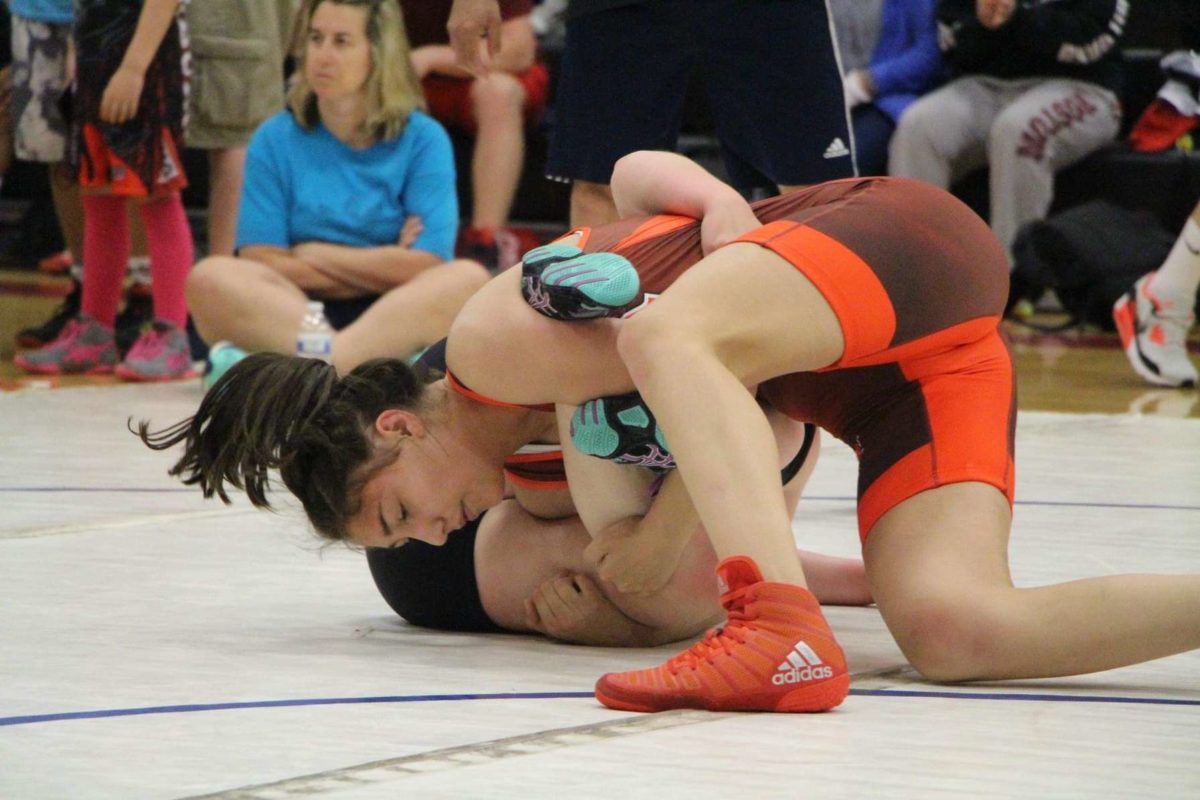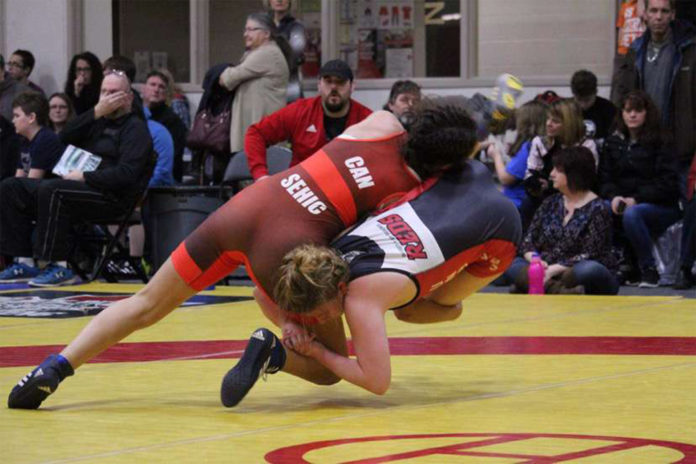Since ancient Greek wrestlers competed in a show of strength and dominance during the first Olympics, contact sports have been a staple of the greater athletic world. Later on, team sports such as early rugby, football and hockey made good use of physical aggression to render the opposing team’s job more difficult.
Fred Mason, a professor of sociology in the kinesiology department of the University of New Brunswick, described contact sports as its own social world.
“You can do things you couldn’t do in day-to-day life and when it’s done you just leave it out there,” he said.
But some athletes see contact sports as more than an aggressive sport, they see it as an outlet.
Caden Coghlan, starting defensive back for Cégep Thetford, said it a hundred per cent makes him feel that he can let out the aggression he has.
“It feels like a load off my chest. I go home after a game or practice and it just makes my day feel better,” he said. “I have no anger because I let it all out while playing.”
Justyn Roberts, a prop for the Tommies rugby team, said the emotions he feels during a match have zero carry-over in his day-to-day life. He said people on the pitch are respectful of the sanctions put in place to ensure the match goes smoothly. The aggression from a match is on the field and controlled, Roberts said.
“A common saying in rugby is ‘speak with your shoulder,’” Roberts said. “Which is to say that if you want to get back at someone, you want to do it right and legally. Contact sports give you the opportunity to beat on each other, so there’s no need for extra curricular.”

Roberts said he thinks people view rugby as too serious and too rough with an aggressive environment. He said it exists within its own space.
For individual sports, such as kickboxing and wrestling, respecting the art while outside of class is important. Elena Sehic, a wrestler for the UNB Black Bears, said it feels good to beat on someone when in a match but control is needed.
“When I get to the mats, I try to leave everything at the door but nobody is perfect and sometimes things can’t be shaken,” Sehic said. “If I’m really mad I’d rather go out for a walk or to the gym than wrestle.”
Jacob Beatty, a recreational kickboxer, said when he feels angry, he’ll do a few hits on a punching bag. Although it feels like an outlet to him, his gym promotes a culture of calmness.
“In football, I was always praised for how hard I could hit someone, even on offense it was more about what the offensive player could physically do to a defensive player. Our coach wanted that mindset to stick,” he said in contrast to his newfound hobby of Muai Thai, a form of kickboxing.
His instructor made it clear to only use the techniques as a defense when outside of class.
Sehic said she only does what she’s supposed to do.
“That’s not the point of wrestling. I’m not going there to hurt anybody beyond what I’m supposed to.”

